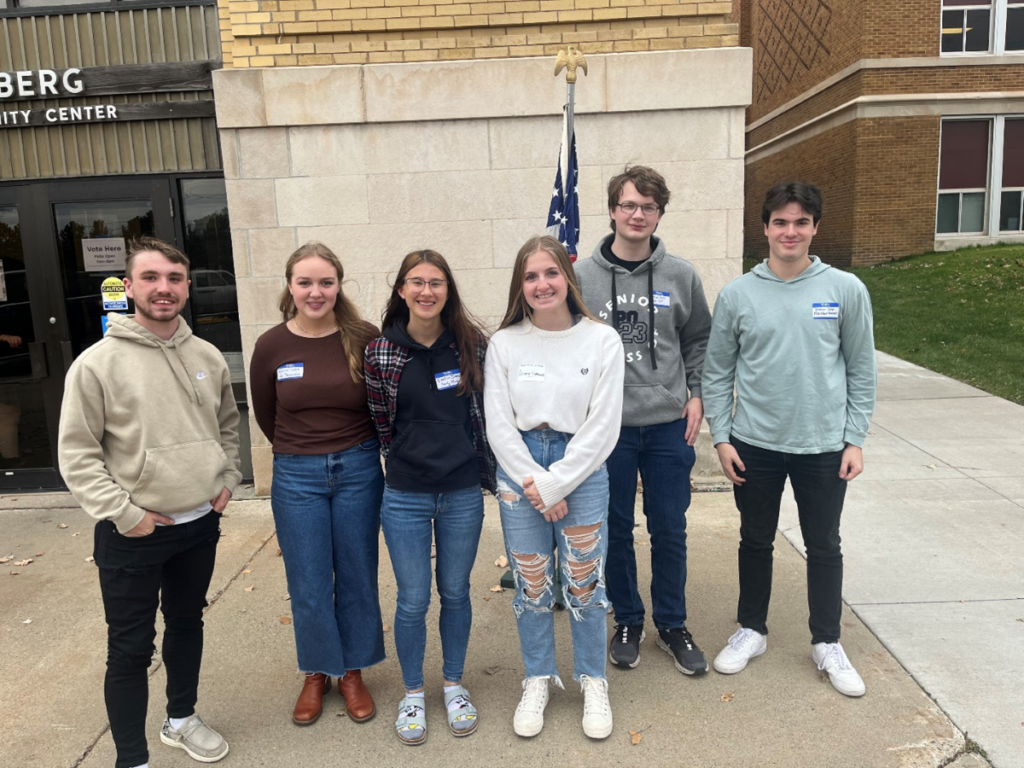Coleraine’s Youth Engagement with Election Judging
The 2020 Election Day presented many challenges and opportunities for innovation for cities. During the height of a pandemic, cities needed to provide safe voting methods for their residents during a highly anticipated election.
Before 2020, retirees made up the majority of the City of Coleraine’s Election Day workers, and it was not uncommon for some to work over 15-hour days at small precincts’ polling places. But with COVID-19 threatening in-person gatherings, Coleraine needed to tap into a younger population to fill Election Day roles and ensure its precincts were safe to support high voter turnout.
Coleraine Clerk-Treasurer Briana Anderson had connections with Coleraine High School employees, given the community’s small size and the high school’s proximity to City Hall. The school’s communications and social studies teachers recommended six students ages 16 and older after Anderson shared the city’s guidelines for election judging, and the students were required to submit letters of recommendation from a teacher and their principal to be eligible. Students also needed to provide guardian permission and attend a two-hour training shift coordinated by the City Clerk’s Office.
Three students worked the 6:30 a.m. – 2 p.m. shift, and three served from 1:30-9 p.m. All students were paid $11 an hour and provided lunch and snacks.
“Yes, they were getting paid and given lunch, but most importantly they were serving their community,” Anderson said. “I made a big deal of that.”
Students were assigned to sign in and register voters, distribute ballots, answer questions about the voting process, operate election equipment, and help adhere to COVID-19 safety protocols. Curbside voting was the only duty students were not allowed to assist with. Anderson had all students rotate from station to station every hour to ensure everyone had a chance to carry out each duty.
“After the first hour, every fear about how the day would go went out the window,” Anderson said. “It was worth its weight in gold.”
With the extra hands available, workers could take breaks to use the restrooms, drink coffee, and have a sufficient lunch break.
“So many good things came out of it, and it relieved a lot of stress,” Anderson said.
There were some pinch points in organizing the students’ I-9, new hire, W-4, and direct deposit forms, but for Anderson, the extra paperwork was worth ensuring a fully staffed precinct and providing students with a teaching tool about election integrity. Anderson said utilizing student election judges helped the city dispel the myths around election cheating and give a younger generation first-hand knowledge of what Election Day entails.
Coleraine continues to use student election judges, and Anderson plans to reach out to high school teachers before the end of the school year to get their recommendations for the 2024 election.
“I see no downside to having election judge trainees,” Anderson said. “They were all courteous and very professional.”

